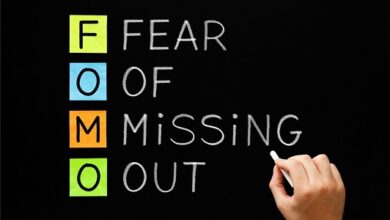Rebecca Syndrome
Imagine finding yourself in a love relationship that has caused you discomfort for a long time and in which there are constant fights. This situation causes you persistent anguish that lasts for long periods and in the end you make the decision to separate so that you can make your own choices more calmly. Months later, he meets someone else and both start a relationship. In this article we will provide you the information about Rebecca Syndrome.
However, you feel that this person manifests clear feelings of insecurity related to the ex that are translated into excessive jealousy. In fact, the manifestation of intense jealousy is a pathological condition, with serious consequences in the daily life of those who suffer from it.
More about Rebecca Syndrome
Rebeca’s syndrome, also known as retrospective or retroactive jealousy, can be defined as the pathological manifestation of jealousy and insecurity towards your ex or a person with whom you have had a romantic relationship. Even though this syndrome is not within the groups that the DSM-V [1] proposes, it could also be described as a celotypic delusional mental disorder due to its characteristics.
Below, we will show you the diagnostic criteria for Rebecca’s syndrome:
- Delusional ideas about infidelities.
- Deterioration of professional , social and family relationships because of these ideas.
- Duration of a month or more.
- The distortion of the perception of reality cannot be explained by the presence of another mental disorder or the ingestion of toxic substances and/or medication.
Symptoms of Rebecca’s Syndrome
How do I know if I have Rebecca syndrome? In order to better understand this disorder and establish the most appropriate treatment, it is important to take into account the manifestations that occur in these cases both physically and emotionally as well as behaviorally. Below, we will show you the main symptoms of Rebeca syndrome:
- Recurring ideas about current partner’s infidelities with their ex.
- Catastrophic thoughts about life.
- Anguish.
- Fear of loneliness.
- Low self-esteem.
- Restless breathing.
- Unstable social bonds.
- Excessive sweat.
- Persistent search for evidence to prove the ideas of jealousy.
- Constant need for approval from others.
- Persecutory behaviors with the partner.
However, it should be noted that the presence of any of these symptoms in isolation does not necessarily mean having Rebeca syndrome. Therefore, the diagnosis of retrospective jealousy should be made by a mental health professional who assesses the clinical conditions of each patient in a particular way.
Causes of Rebecca’s Syndrome
Rebecca’s syndrome can have different origins that give rise to the symptoms mentioned above. In this topic we will address the most frequent causes of this retrospective jealousy:
environmental factors
Generally, people who have experienced infidelities in one of their love relationships tend to fear that the same situation will be repeated in their future relationships. This will explain the insecurity they manifest about their loved one’s ex.
On the other hand, feelings linked to jealousy can also arise during childhood due to having lived unpleasant experiences within the family nucleus. They leave marks that are taken as patterns of behavior throughout life.
genetic factors
Likewise, in these cases it is also important to take into account the role of genetic inheritance in people who manifest permanent insecurity. Here factors come into play such as, for example, the functioning of the central nervous system or the tendency to alcoholism , among others.
Treatment of Rebecca’s Syndrome
How to overcome Rebecca syndrome? Despite the obstacles that Rebeca’s syndrome can generate, today we have several approaches that can provide satisfactory results for people with this clinical condition. The most recommended treatments for Rebecca’s syndrome are:
psychological therapy
Therapy is a space that invites you to reflect on a person’s actions and context. Firstly, we can find short-term therapies that focus on seeking tools to face situations of fear, insecurity and/or anxiety in a milder way. In this sense, cognitive-behavioral therapy is one of the most recommended approaches to treat retrospective jealousy.
On the other hand, long-term therapies try to locate the origin of a person’s conflicts through the memory of childhood situations. In this way, the person can adopt other alternatives when experiencing complex situations. In this case, the most effective long-term therapy is psychoanalysis.
psychiatric medication
In cases of such severity that it is impossible for a person to carry out daily activities, the administration of anxiolytics may be a viable option. These medications reduce the intensity of symptoms by modifying the brain’s chemistry.
However, the supervision of a reputable mental health professional is essential before starting this treatment.




